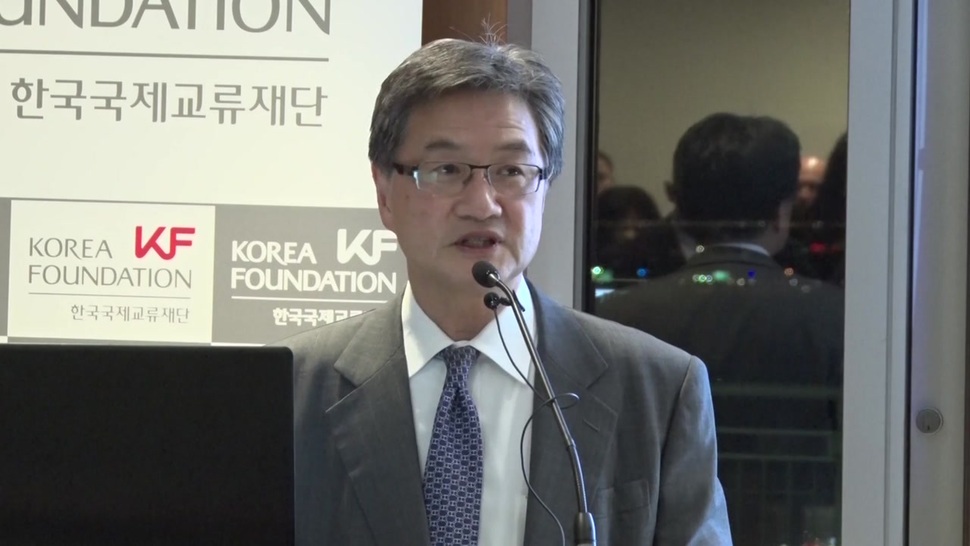 |
|
Joseph Yun, the senior US representative for North Korea Policy, speaks at a Dec. 7 end-of-year gathering jointly organized in Washington, D.C., by the Korea Foundation and George Washington University Institute for Korean Studies. (Hankyoreh)
|
Contact between two sides could come at a diplomatic conference being held in Thailand this week
After US Secretary of State Rex Tillerson said on Dec. 12 that it was “not realistic” to insist that dialogue can only occur if North Korea gives up its nuclear program and mentioned a meeting with North Korea “without precondition,” focus is turning to how North Korea will respond. While the White House downplayed Tillerson’s remarks by saying that President Donald Trump’s position on the North had not changed, it remains a possibility that a positive response from North Korea could lead to exploratory talks with the US. Since its test launch of the Hwasong-15 intercontinental ballistic missile (ICBM) on Nov. 29, North Korea has been cautiously putting out feelers about dialogue to the international community while declaring the completion of its “state nuclear force.” UN Under-Secretary-General Jeffrey Feltman visited North Korea on Dec. 5, following a visit by lawmakers from Russia’s State Duma on Nov. 29. These lawmakers relayed a message from Kim Yong-nam, President of the Presidium of North Korea’s Supreme People's Assembly, that “the North was prepared to sit at the negotiating table.” And after a meeting with Tillerson in Vienna, Austria, on Dec. 7, Russian Foreign Minister Sergey Lavrov said that “North Korea wants direct dialogue with the US.” While North Korea has remained adamant that it will not engage in dialogue predicated on denuclearization, the North’s stance since declaring the completion of its nuclear force and Tillerson’s remarks are triggering speculation that the winds of change may be blowing in North Korea. “There must have been some kind of discussion during Feltman’s visit to North Korea. If the US extends its hand right now, North Korea will take it,” said Koo Kab-woo, a professor at the University of North Korean Studies. “For now, North Korea will try to ascertain the sincerity [of Tillerson’s remarks],” said Yang Moo-jin, a professor at the University of North Korean Studies. “It’s possible to say that they’re ready at any time [in the future] for dialogue in which the denuclearization that the US wants and the peace treaty that North Korea wants are on the same table.” Intriguingly, the general meeting of the Council for Security Cooperation in the Asia Pacific (CSCAP) – which will be attended by North Korea and the US – just happens to be taking place in Thailand on Dec. 14 and 15. The US State Department has announced that US State Department Special Representative for North Korea Policy Joseph Yun (who is also the US’s chief envoy to the Six-Party Talks on North Korea’s nuclear program) will be visiting Thailand at this time, raising the possibility of contact with North Korean officials. By Kim Ji-eun, staff reporter Please direct questions or comments to [english@hani.co.kr]






